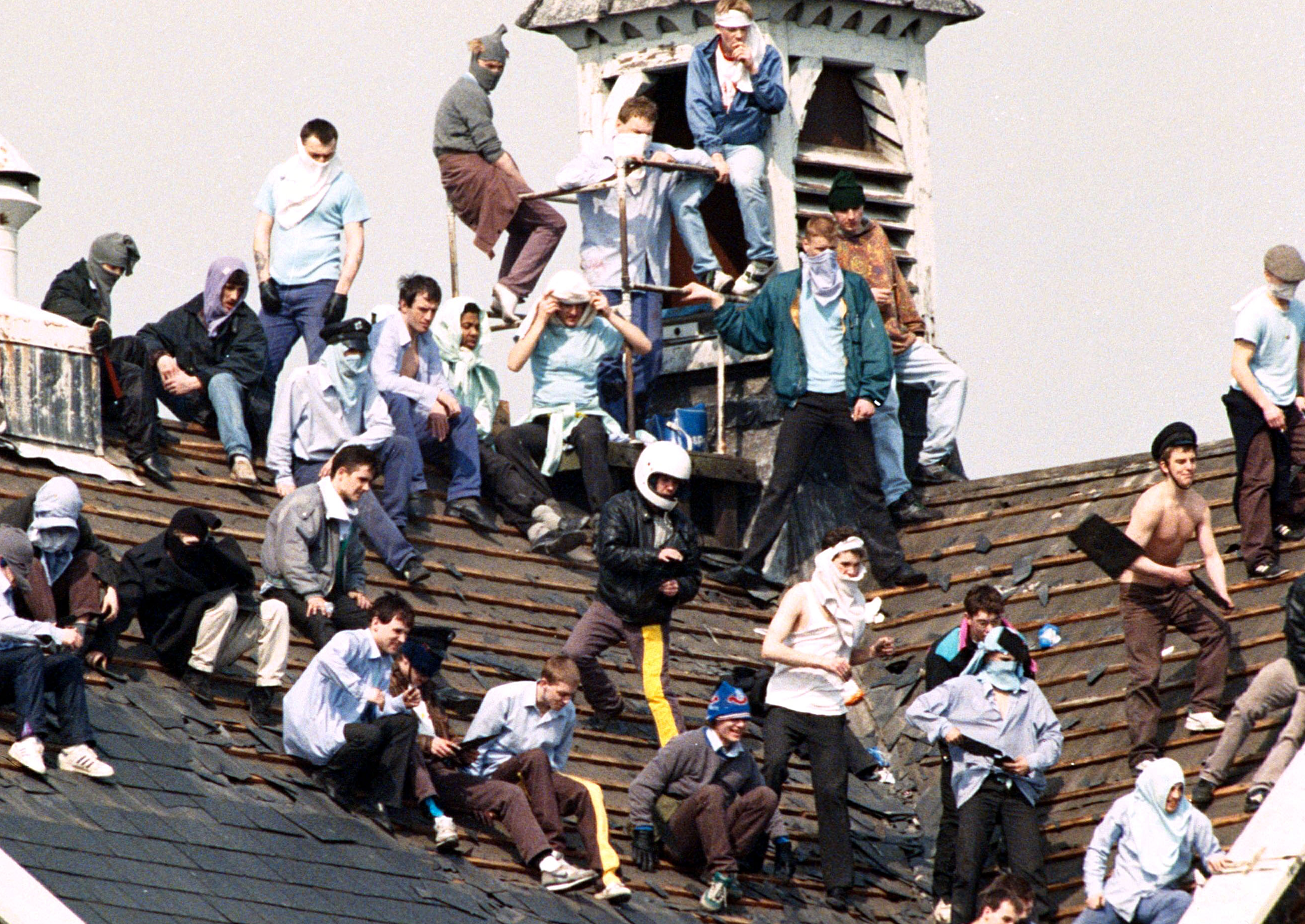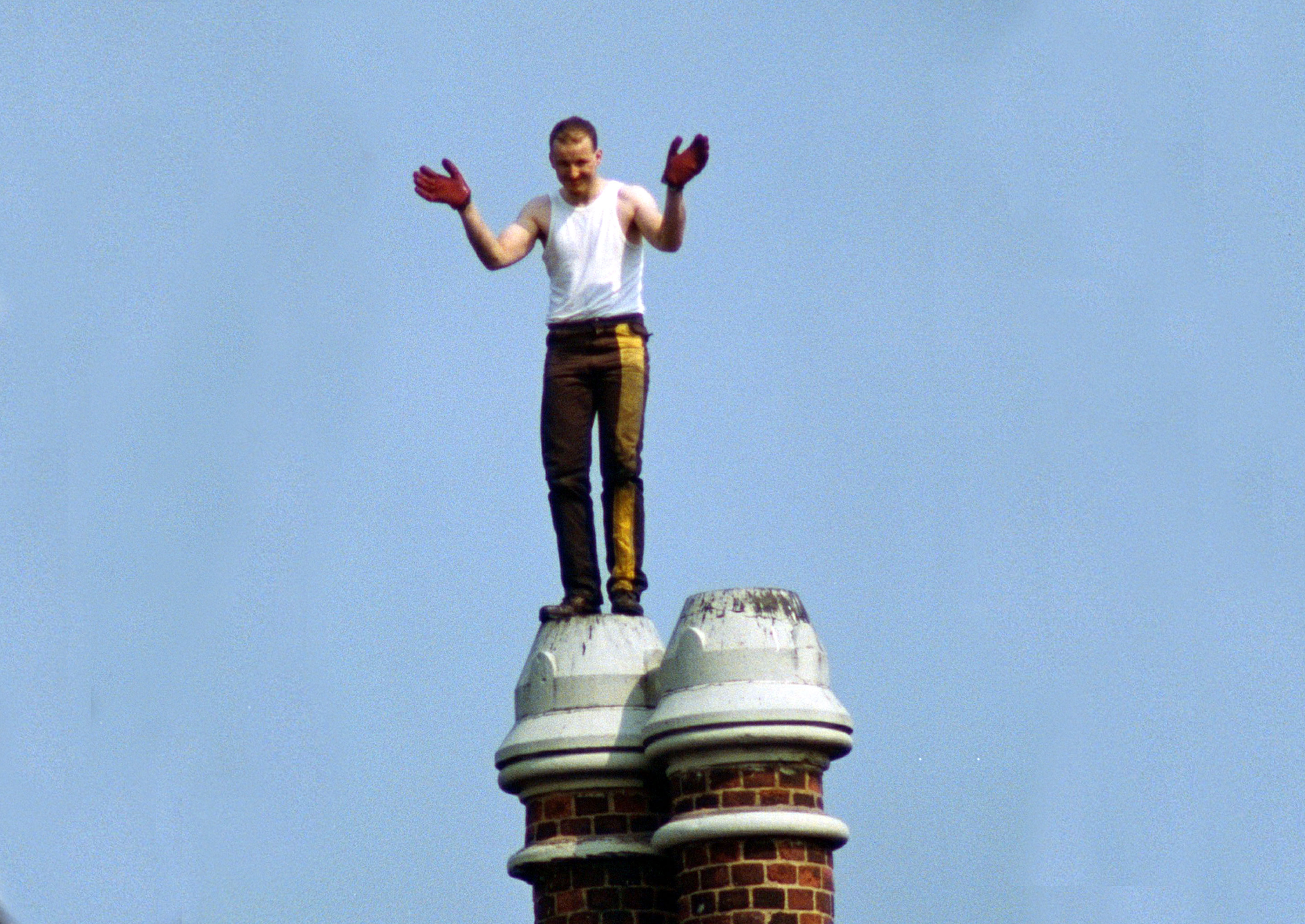It's been 25 years since the Strangeways Prison riot, and we're now dangerously close to seeing a repeat
The Ministry of Justice have desperately been trying to sweep the bloody mess of our prison system under the carpet, but it won't work

Your support helps us to tell the story
From reproductive rights to climate change to Big Tech, The Independent is on the ground when the story is developing. Whether it's investigating the financials of Elon Musk's pro-Trump PAC or producing our latest documentary, 'The A Word', which shines a light on the American women fighting for reproductive rights, we know how important it is to parse out the facts from the messaging.
At such a critical moment in US history, we need reporters on the ground. Your donation allows us to keep sending journalists to speak to both sides of the story.
The Independent is trusted by Americans across the entire political spectrum. And unlike many other quality news outlets, we choose not to lock Americans out of our reporting and analysis with paywalls. We believe quality journalism should be available to everyone, paid for by those who can afford it.
Your support makes all the difference.Twenty-five years ago an unholy tussle took place at the gates of hell. Inside the chapel of HMP Strangeways, Manchester’s notoriously brutal gaol, a prisoner and a priest wrestled for control of a microphone while the three-hundred strong inmate congregation cheered on.
“Fuck your system,” someone screamed, “fuck your rules!”
It was the start of biggest prison rebellion in British history. For 25 chaotic days inmates took to the rooftops to protest against squalid conditions and brutal treatment. Brendan O’Freil, then governor of Strangeways, was quick to brand it an “explosion of evil” and the press eagerly latched on. Lurid accounts of prisoners crazed on pharmaceuticals and power filled the media. Kangaroo courts, castrations, and hangings sprung from the mucky gutters of editors’ imaginations.
All the rebels of Strangeways really wanted was to be treated with a little humanity. As the saying goes: the hand that reaches out to snatch control of a prison is really just reaching out for love. One of the "evil" rioters’ demands was to be allowed to embrace their loved ones during visits.
The riots led to much needed reforms in the British prison system. But now, a quarter of a century later, experts warn that Strangeways could be coming round again. The British prison population is double what it was in 1990, and those behind bars are being forced to fight over increasingly scarce resources.
“I fear we’ve allowed ourselves to go backwards,” said Lord Woolf, who led a major enquiry into the British prison system after the riots, “and we’re back where we were at the time of Strangeways […] prisoners are again being kept in conditions which we should not tolerate.”
It’s a terrifying pronouncement – but not a surprising one. The story of the prison system’s deterioration since current Justice Minster Chris Grayling came to power in 2012 has been written in blood. Last year 84 prisoners were driven to suicide – which was influenced, experts say, by dangerous cuts to care. And violence is up too. Last year there were almost 16,000 incidents of prisoner-on-prisoner assaults, and around 3,500 attacks on staff. Although inmates weren't always just attacking each other: there were also 25,000 reported incidences of self-harm.
It’s a bloody mess that the Ministry of Justice have desperately been trying to sweep under the carpet. Recently Frances Crook, CEO of the Howard League for Penal Reform, was banned by someone “on high” from visiting Oakwood Prison. Meanwhile, The Guardian's Amelia Gentleman has rightly despaired that “visiting a military prison in Vladimir Putin’s Russia” is easier than gaining access to a British prison. As legitimate avenues for exposing injustice are becoming increasingly inaccessible, there's no ruling out that tensions may rise among prisoners and cause them to lash out.

I recently had a very sobering conversation with one of the original Strangeways rioters. Alan Lord was one of the protest’s key figures, and is now the proud owner of AL’s Gym in Radcliffe. His new book, co-authored with partner Anita Armstong, offers a shocking insight into the abuse and neglect that characterised the prison system around that time.
“I’ve been out for two years now but the fact is when I was approaching my release there was a lot of discontentment within the prison system,” said Alan when I put Lord Woolf’s recent statements to him. “Inevitably I can see that it is going to go up. Abuses are still taking place within the prison system.”
Strangeways was a long time coming, and those in power had plenty of warning that it was on its way. Up until the night before the riot, inmates were passing notes to staff detailing exactly what was about to happen. But those warnings were ignored, at a terrible cost. Two men lost their lives, 147 prison officers and 47 prisoners were injured, and the taxpayer was faced with a bill of around £100m for the damage. And perhaps most terribly of all, 23 protesters were singled out for punishment and collectively lost 140 years of their lives, despite the fact that Lord Woolf’s report has largely justified their grievances.
Today, the wail of anger and misery emanating from the British system has become almost deafening. So far, prisoners largely seem to have been taking out their frustration on themselves, but the mood is changing. A recent report by the Commons justice select committee revealed that “incidences of concerted indiscipline” are up by a hundred per cent. Another Strangeways would be a human tragedy on a massive scale – but perhaps no more so than the tragedy our prison system has yet again become.
Join our commenting forum
Join thought-provoking conversations, follow other Independent readers and see their replies
Comments